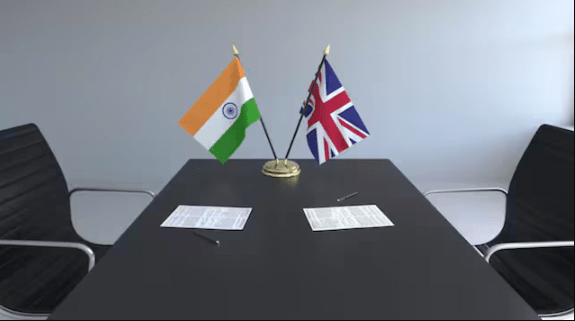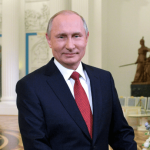LONDON – India has agreed to scaled-back visa concessions from the United Kingdom, easing the way for a free trade agreement as negotiations reach a crucial stage.
A UK official revealed that the new rules will result in about 100 additional visas for Indian workers each year – a modest shift from Britain’s side.
Ministers have repeatedly stressed the importance of sealing a trade deal with India, describing it as a major economic goal. Yet, with Reform UK under Nigel Farage targeting Labour voters in key constituencies, visa talks remain politically delicate.
India’s Initial Demands Dialled Down
According to a UK official, India initially pushed for a much larger visa quota, seeking more opportunities, particularly in sectors like IT and healthcare. However, London held firm.
The mobility chapter of the deal, aimed at smoothing inter-company transfers, has now been concluded.
“It is not possible to put a number on” the expected inflow of Indian workers under this chapter, a person close to the negotiations explained. They emphasised that setting a figure is “purely political.”
Nevertheless, the agreement is expected to offer businesses “certainty” amid recent fluctuations in the UK’s immigration rules. The individual, like others, spoke under the condition of anonymity as talks remain ongoing.
Goyal to Press for Further Gains
India’s chief trade negotiator, Piyush Goyal, is scheduled to visit London this week. He plans to push for additional concessions from the incoming Labour government under Keir Starmer.
Key demands from India include:
- Exemptions from the UK’s incoming carbon tax on high-emission imports.
- Allowing Indian firms to reclaim contributions to Britain’s public pension scheme for short-term visa holders.
“Interestingly, it’s [the U.K. Department for Business and Trade] rather than the Indian side sounding more positive about the deal being close,” a third source familiar with the talks said. “Previously, the Indians were getting way ahead of themselves.”
Home Office to Enforce New Rules
The Home Office will enforce the new visa regulations. Officials there have been reluctant to grant sweeping visa exemptions, concerned about the impact on net migration figures.
A spokesperson for the Department for Business and Trade said: “This government is committed to doing the right deal with India, which will improve access for UK businesses, cut tariffs, and make trade cheaper and easier.”
“Talks have been ongoing since they were re-launched in February, and we will only sign a deal that is in the best interests of the British people and drives growth across the UK.”
Momentum Built After “Step Change”
Negotiations gained momentum earlier this year when UK Trade Secretary Jonathan Reynolds met Goyal in Delhi. A senior business representative said there was a noticeable “step change” in India’s readiness to make concessions.
“There’s a sense that the Indian government just wants to get something done and over the line now,” they remarked. They suggested that global trade tensions, particularly under former US President Donald Trump, have pushed India to seek new agreements.
Still, India’s Finance Minister Nirmala Sitharaman insisted that New Delhi isn’t rushing into a deal because of US actions. “It is not as if we’re rushing into a U.K. [free trade agreement] because something is done by Trump in the U.S.,” she stated during a dialogue with UK Chancellor Rachel Reeves.
Pension Contributions and Carbon Tax Challenges
India is also lobbying for a “Double Contribution Convention.” Delhi’s top diplomat in London, Vikram Doraiswami, explained: “Essentially, what we’re really looking for is something that you have with other countries which allows people who are already paying to their pension pots back home in India [to] be exempted for the period of their stay here.”
Another major concern is the UK’s forthcoming Carbon Border Adjustment Mechanism (CBAM), set to align with the EU’s system by 2027. This could impose steep tariffs on Indian steel, aluminium, and cement.
Shashi Tharoor, chair of India’s parliamentary external affairs committee, highlighted the issue: “India has presented some new concerns that have come up over [the U.K.] carbon tax, which will certainly have some implications for us.”
Piyush Goyal has fiercely criticised the tax, warning it could trigger a “death knell” for manufacturing in Europe.
Doraiswami stressed: “Once you have a trade deal, there must be an even playing field for both sides.”
Despite hurdles, both sides are inching closer to finalising the deal. With global trade dynamics shifting, the urgency to secure new alliances is growing. Sealing the agreement, however, “requires a lot more flexibility on both sides,” as Tharoor put it.






